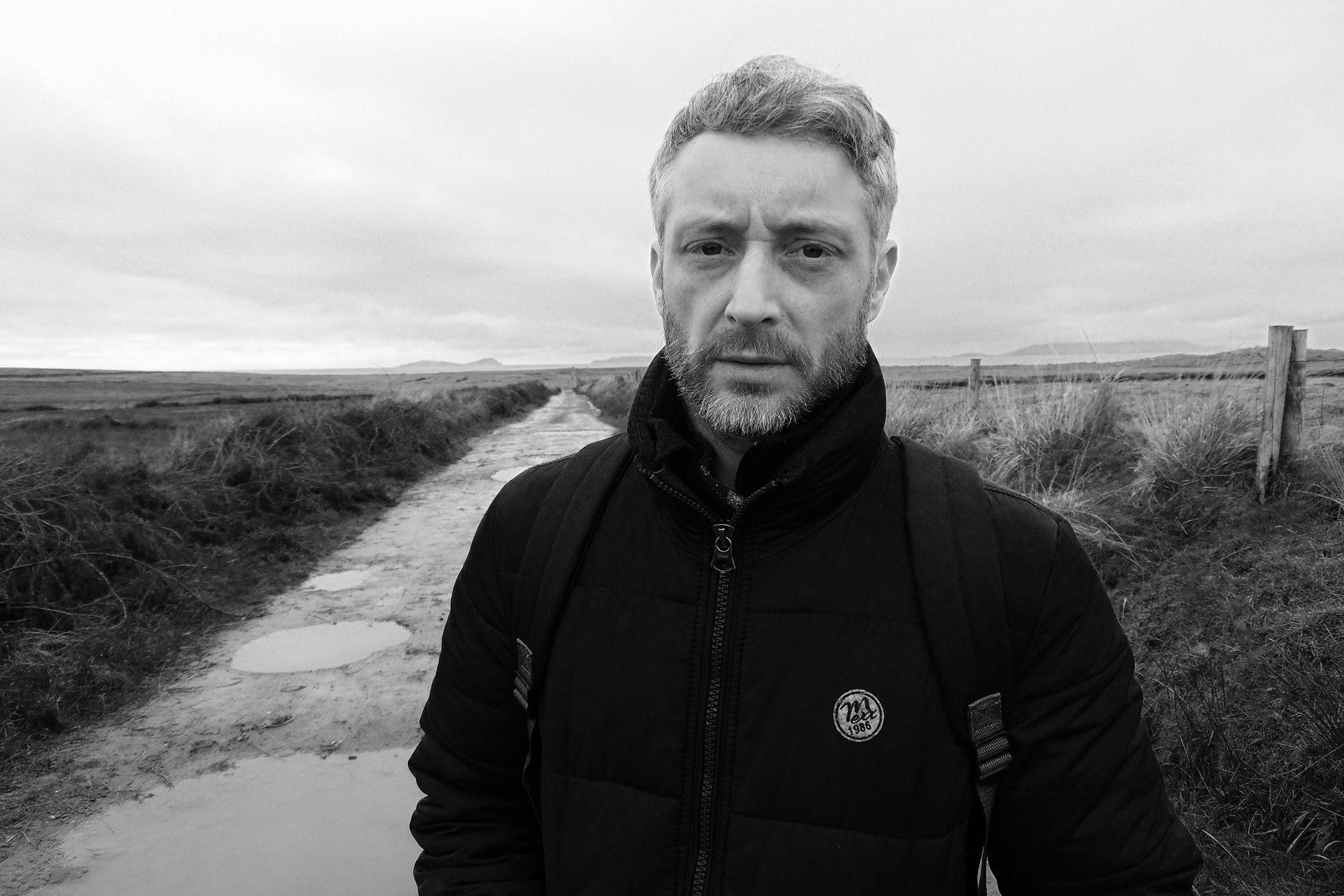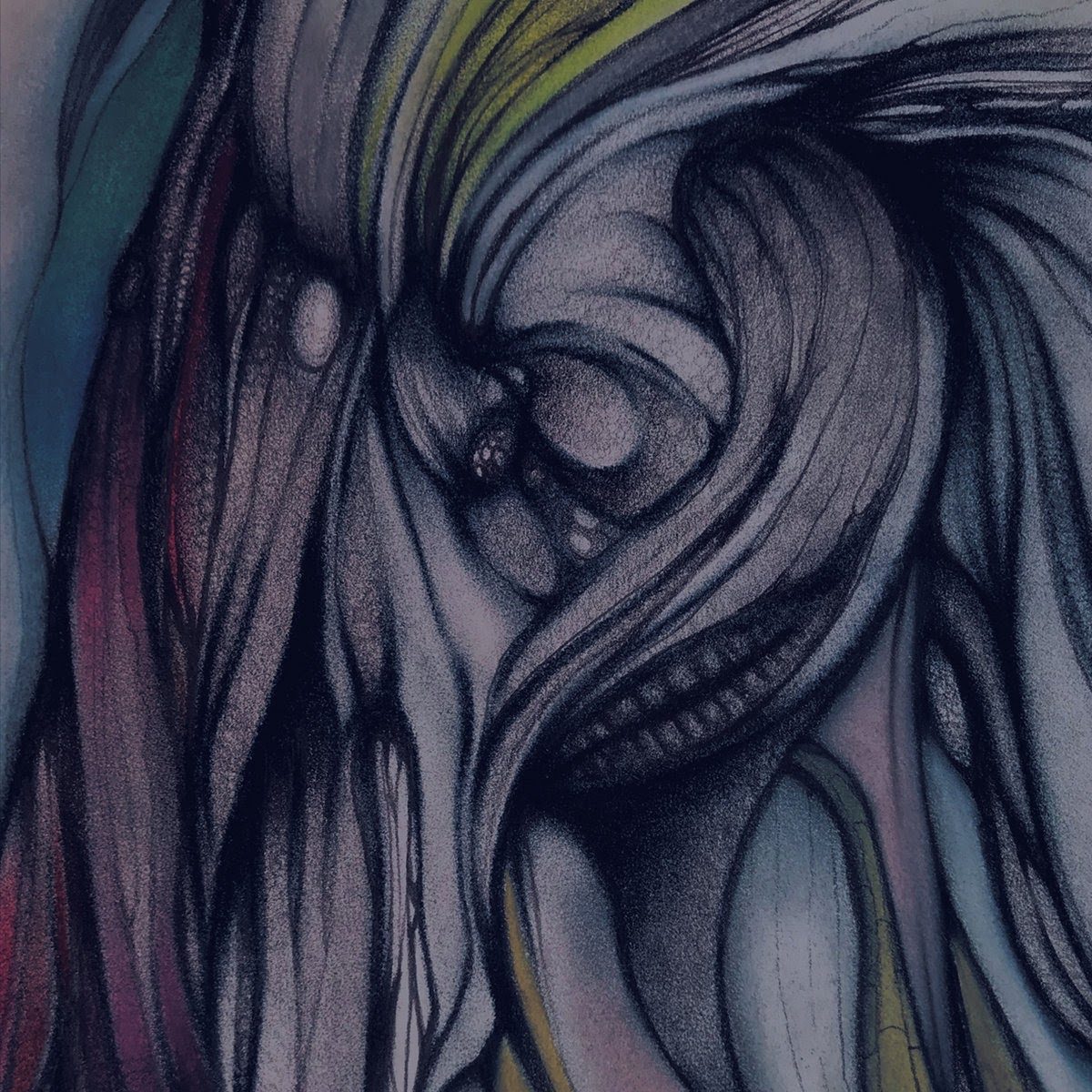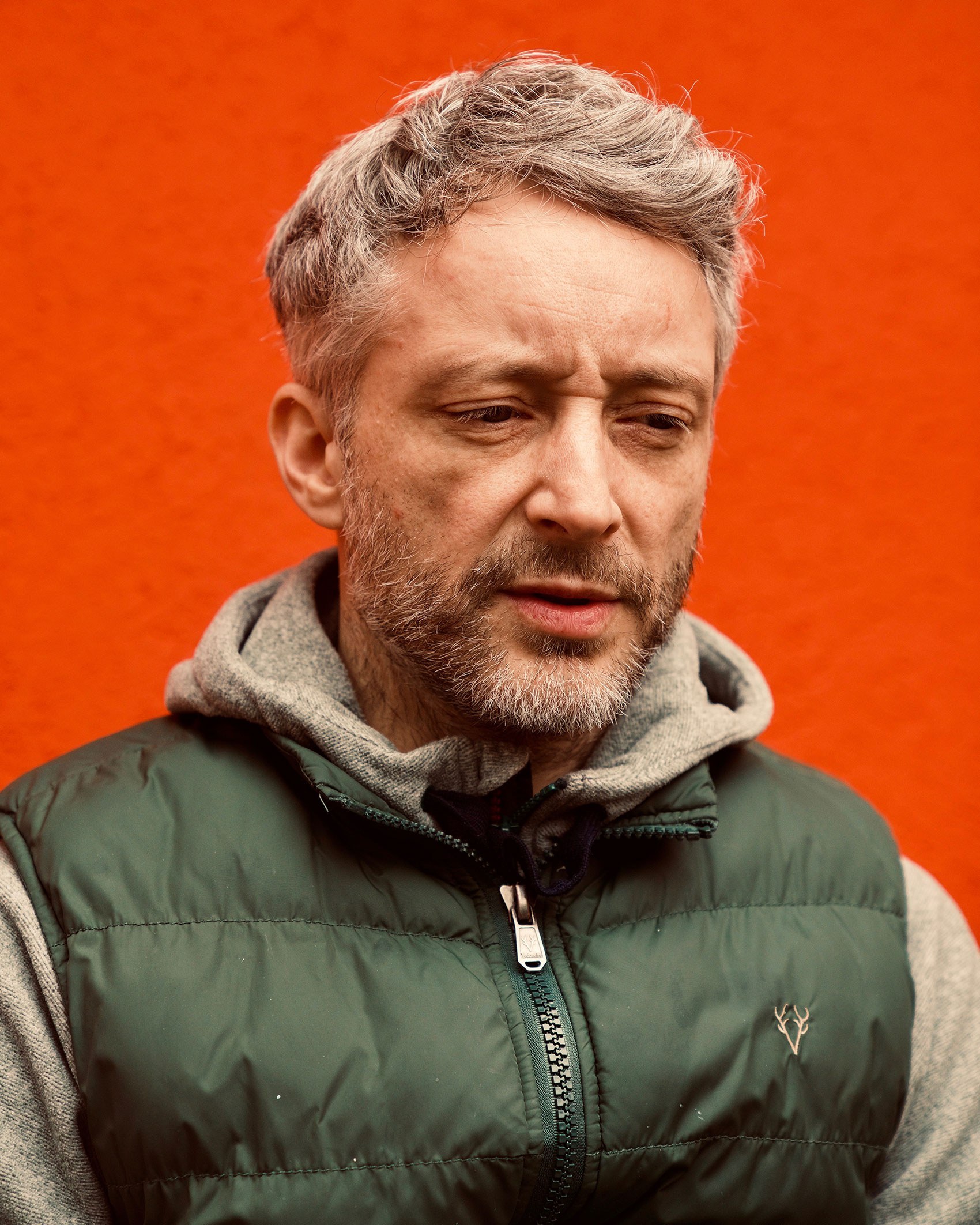 Interviews
Interviews
Calibre: “The younger generation just hear music, they don’t hear the genre so much”
We spoke to Calibre ahead of the release of his new album, 'Feeling Normal'
Calibre is prolific. Take a look through his back catalogue and you'll see 17 albums and countless singles, 12"s and EPs. He just loves writing music. So much so, he says a lockdown-enforced year of no gigs has actually suited him, allowing him to get his head down and write tunes, adding to the hundreds and hundreds of unreleased tracks already sitting around in digital folders. He's most comfortable when he's writing, he says it "comes out of me like water". That flow has resulted in a collection of multi-genre material, either ideal for the rave or moments of pure relaxation. He's behind some of best drum 'n' bass releases of the last 20 years, including the albums 'Second Sun' and 'Even If...', as well as the 'Shelflife' series. But don't do him the injustice of only labelling him as a d'n'b producer. He's equally adept in dub, ambient and house, as proved on records such as 'Grow' on Craig Richards' label The Nothing Special, last year's stunning 'Planet Hearth', an LP moving through classical piano chords, beatless textures and relaxing, meditative bass kicks, and latest album 'Feeling Normal'. Then there's 'Shine A Light' and 'Valentia', two eclectic albums under his birth name, Dominick Martin, that span downtempo, jazz and folk. You'll often hear his own vocals on his tracks, too.
Belfast-born, Calibre puts his natural ability to make a range of music down to the traditional music background he comes from, notably "weird, folk-type" stuff, as well as having no transience with music. "I still listen to punk records, I still listen to listen to stuff I heard when I was a child in the 1980s," he tells us.
He says when he first started making music, his style was "all over the place". Now, on 'Feeling Normal', the Northern Irish producer deliver his first fully 140 BPM record and it feels like this is a real transition point in his career. In classic Calibre fashion, the album's deep, atmospheric and packed full of emotion as he moves through skippy, UKG-esque kicks, growling, low-end bass and head-nodding dub. Road-tested in clubs pre-pandemic, it's prime for a hefty club soundsystem, but works just as well at home.
Now based in Berlin after stints in Valentia (a small island on the west coast of Ireland) and Cologne, Calibre spoke to us about the new album, his decision to move into 140 BPM territory, the feeling of being an outsider, younger generation ravers and more.
You've moved from Cologne to Berlin recently. What were the reasons for moving to a big city?
I moved from Cologne in December and I've been here through lockdown. It's been cool because Hard Wax [Records] isn't far away from me, so I can get get down there and get a bit of normal feeling going by going to record stores. Just to have music at this time - just like a record collecting thing - is even more important to me and Berlin has been great for that. It's also a place that's a good hub. There's connectivity between different types of artists in different industries and trades.
Before, especially with the coronavirus, would you say you felt a bit isolated before you moved to Berlin?
I think I have an in-built isolation thing anyway. I guess I seek to be isolated in a lot of ways. It's one of the reasons I went down to Valentia on the west coast of Ireland for years. I just enjoy being in a place where there's nothing going on. I do like to be isolated and be just working away. I find that makes me happiest. But here in Berlin, there's such a thing going on. It's sort of relentlessly happening all around you, so you can't be too introverted in a situation like this. The COVID thing sort of suits me in a way because I'm able to just sit and write and I'm quite happy doing that day after day. I guess a lot of other people are getting really pissed off, but I've been able to turn the negatives into positives.
Would you say you've struggled without being able to play out or travel as regularly as you would have done before?
I was always an uncomfortable DJ in a sense that it wasn't what I really wanted to do. A lot of the other cats were there because they wanted to be DJing and playing music. I've always, sort of, been uncomfortable with it. I haven't really missed the travelling, but I've definitely missed being able to speak to people, experience different things and, of course, to test music. Obviously, when you don't have that area of targeting, it affects how you're sculpting and moulding things. But fortunately, I've been a prolific writer, so I have loads and loads of material that I can spruce up a little bit or rediscover. The 'Feeling Normal' album, for instance, is an album that was written during the time of normalcy. It's very precious, that material. It's nice to have that real feeling that was tested in those places [nightclubs]. We're going to come back to something like the way it was, but it's just going to take a while. It's difficult to write into the void, without the clubs and that culture driving it, but at the same time I also think that a lot of electronic music needed it. I think there was a lot of banality and I think people are too reluctant to sit inside their genres.
Has lockdown affected your process of making tunes in terms of the mood?
If anything, it's better for writing during this time because I can just concentrate and take time over things. Whenever, you're gigging all the time, it's really difficult. It's hard to explain it to people, but I would always get really emotionally displaced after gigs. I'm sure it's the same for a lot of people. It would take me a long time to recover from it. Sometimes, by the time I would be away again next weekend, I would still be in that moody 'fuck everything' type of feeling. You don't get much done when it's like that. People don't realise that. Yeah, it's great seeing people on the road and going to clubs and all the culture involved, but there's a human price to pay. I think music suffers a bit from it. Is that some of the reason why some music sucks a little bit there on the main stages? I don't know.

How do you hope the new album, 'Feeling Normal', will help people who may have who may have had a tough year and haven't been able to do what they normally do.
I hope it does for people what it does for me. I can just feed on the sense of how music works for me. It's a relief being able to hear music that you know is going to work in a club and, also, your home as well. That was the target. I think that's a really special place for electronic music.
The album is your first fully 140 BPM record. What was your decision-making process in doing that?
I just write a lot of different types of music which gives me the option to create an albums' worth of stuff. I'd also released 'Grow' on Craig Richards' label The Nothing Special, which was more of a mixture of tempos than 'Feeling Normal'. I played a gig at Houghton Festival and Craig said 'Just play whatever you want'. I built my set up into the 140BPM area and it was the bit that really caught me and got me excited. I had this epiphanal moment there, that the refining of that tempo was something I was really interested in because it allows me a place where I can retain the dirtiness of the drum 'n' bass stuff, but I can get in the vocal range that I wanted and slip in my own vocals. As a tempo it's really appealing creatively.
Is the artwork of the album a piece of art by you?
Yeah, I've been doing this for years. Since I've been writing music I've been drawing as well. I've tried to weave it in into the music thing somehow. Art is like music, it does the same thing for me. When I start drawing, I can just chill and forget about everything. Afterwards, I feel like I've had a bath or something like that.
Especially not being able to DJ at the minute, it was must be quite a big outlet for you at the minute.
I'm still playing music to myself and doing sets for myself. This is the one thing about it [lockdown] that's good, is that it really gives me time to go through a lot of creative stuff that I do. I think this is going to be a period when people are going to come up with new things.
How do you think the pandemic will affect the world of electronic music?
One thing I think you can guarantee at the moment is that things will change quite quickly because they have to. I think within the music industry, there's things going on all the time that I'm hearing about. I think the blockchain thing that will move into the selling of your work is going make it a bit easier for people to keep track of their work and not have them get ripped off so much in the future. I'm feeling really positive about the future and how it feels when we come back. I'm a little bit anxious about it. I don't really know how it's going to feel getting onto planes and going into hotels again. It's such a strange thing.

You've not been living in the UK, but have you been keeping up to date with the lack of support for musicians and nightlife from the UK government?
I expect that after years and years of neglect and ignorance. It's not a secret that they just completely disregard a whole industry and what it does as an export for the country. I think it's disgraceful. I come from Northern Ireland so my feelings of this run a lot deeper than just the music industry. I think on a basic human rights basis, these people are wrong ones. I don't understand why there's a vast amount of the UK population that would vote for such people. I expected them to concentrate on what they could get for themselves and their mates. That's just my experience over the years of working and living in the UK. I'm really disappointed about who these people are and why they're still acceptable. Over this next year or so, I think this stuff with the Tory government is going to come back and bite them in their arses big time.
How do you think this treatment of musicians and what's happened will affect the way people are approaching music?
I think people in UK can feel that their lives have been touched by the decisions of these arseholes. Maybe before, there's [been] a long period of time, when that's not really happening. So music wasn't very political. Lots of different genres became watered down and the political stuff that I grew up with seemed to disappear. It's really good to hear that coming back because people need to know about the environment they live in and not be ignorant about it.With clubs shut, there's been a lot of illegal raves, not just in the UK, but all over Europe. What are your views on that?
I have people in my family that are medical people, so I know what's going on there. I can listen to both sides of the argument and sympathise. It's really difficult because, as a musician, you don't want to come across like some humbug dude and say, 'Everybody's got to listen to the government.' People are going to do what they're going to do. That's unfortunate because you're going to have an effect from that. I want people to have fun. I was young and they've got a right to have their lives. I guess somebody's got to be responsible, but when you're young, it's not your mission to be responsible. It's extraordinary how all of this is affecting people's politics. Even with Brexit - that was making everything very divided and polarised, so, again, you have more divisions.
You've really shown your versatility with the new album and records such as 'Planet Hearth' and 'Grow'. It seems like you're moving away from drum 'n' bass a bit. Was there a big decision behind that or did it just happen?
There was a conscious move to try to be creative in different places to see how the refinement process would go. Changing the tempo and the percussive elements of things, even removing percussive elements - all of this is really interesting to me. I find that if I'm stuck in one particular genre of music, then it means I can't really do that. I think a younger generation of ears just hear music, they don't hear the genre so much like my era would have done. It seems like the timing is right. It's inevitable if you want to try and replenish your creative juices as well. It's just a natural thing. It's just being able to do something that comes natural to me.
I've done all these things in drum 'n' bass, but I don't say 'I know this, I know that' about drum 'n' bass. I still love it as music. I still write it. Artists over the years, they seem to just jump ship and I don't understand that. It's a really beautiful thing to be able to move into different types of music without being judged too harshly, which is something I think happened a lot before and maybe made people jump ship. At the end of the day, I learned about all this stuff after all these years. I think that's one of the reasons I'm still here doing it because I appreciate that part of it. It becomes more academic after a while and I love the feeling of some of the knowledge that I've gained over the years. I feel as long as my ears keep going, I'll just do whatever I want to and hopefully people like it. In music journalism years ago, they seemed to think that they could write it [genres of music] into the oblivion. They couldn't understand that it's like a biology, when, once the form is there and it's successful, it just repeats itself. It keeps going and in different forms. It doesn't matter what people think. There's always energy in something to keep that form going.You've spoken before about the stigma behind drum 'n' bass. People tend to grow out of it as they get older. How did you find it to keep making it, while a lot of fans move away from it?
It's because I still see it as a viable art form. One of the reasons why I'm interested in it is because of the people. I still love people who I've met in drum 'n' bass. There's some human beings in there that are just really fantastic characters who are unlike the people in the other genres that I've met. It's a really unique and special thing, as much as it's derided by people. People are still pretty staunch about what they like in there. I've got respect for them. I'm not going to start slagging people off because I write a different album.
Have you ever felt like an outsider or felt like you shouldn't be there when you've played the house and techno festivals like Houghton?
I felt like that when I was a child and I feel like that now. In drum 'n' bass, I feel like an outsider a little bit. I accept I am who I am. I'm not there to try to fit in with everybody. I just make music and do my thing. Whenever I go to things like that, it's always nice to meet people. I would always be really happy when I met people from different genre and they were nice. Then I met people who were really arrogant and that really made me depressed.
Calibre's 'Feeling Normal' is out now on Signature Recordings


